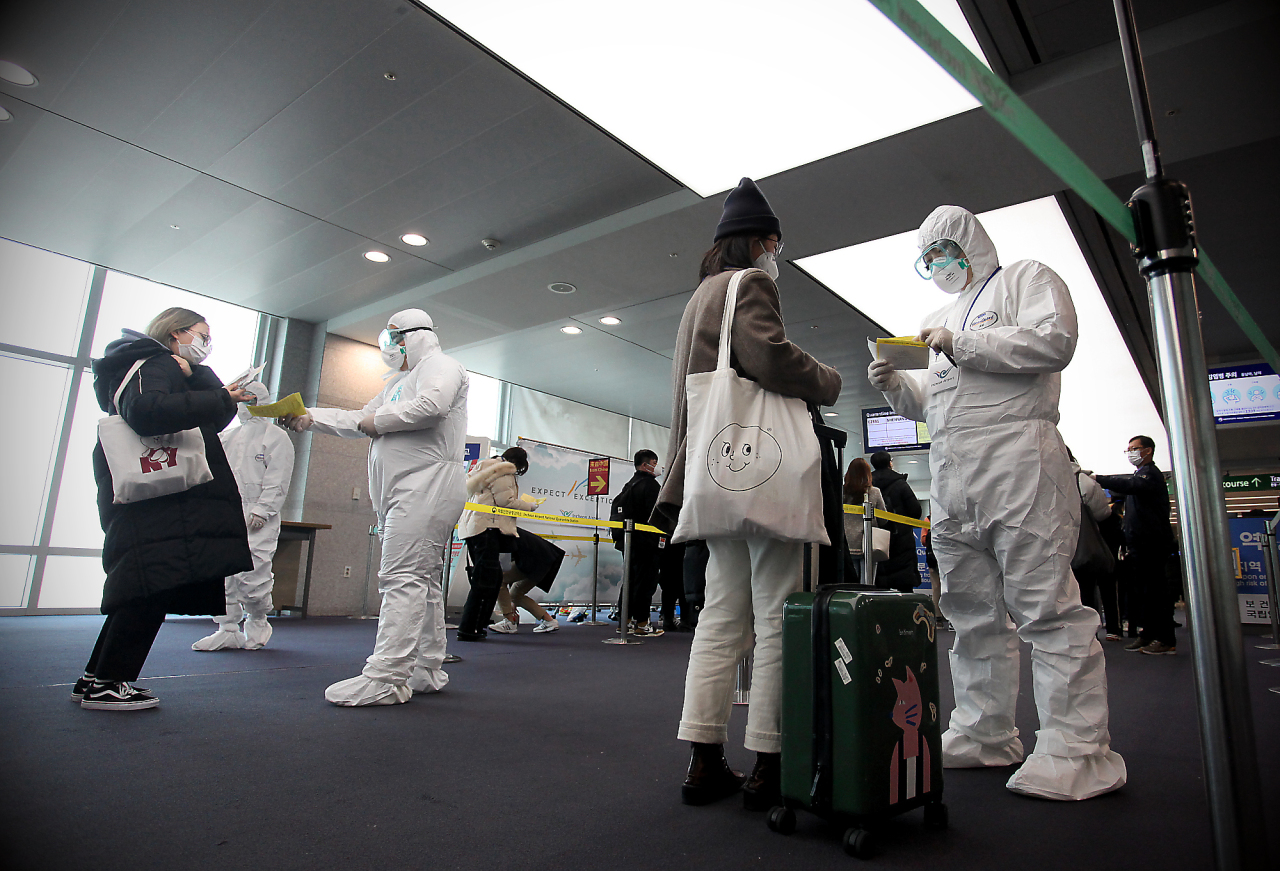
Prime Minister Chung Sye-kyun said Friday that it was difficult to ban arrivals from Europe and the US to contain the novel coronavirus, as 90 percent of imported cases were Korean nationals.
“The number of newly confirmed cases in the country has gone down to a stable level, but the share of imported cases are rising. Managing risks from overseas has become more important,” Chung said at the beginning of a meeting of the Central Disaster and Safety Countermeasures Headquarters.
“But considering that 90 percent of the imported cases are Korean nationals, it is difficult to take measures such as an entry ban right now.”
The prime minister said the current system based on mandatory self-quarantine should be followed rigorously to prevent imported cases from spreading the virus to local communities, stressing that the role of local governments that manage those coming from abroad in self-quarantine was crucial.
“Successful management in the Seoul metropolitan area, where more than 70 percent of the people who arrive from overseas reside, would determine the outcome of this fight (against COVID-19). We will look into the situations of local governments, starting with Seoul today,” he said.
Starting Friday, all entrants from the US for long-term stays are required to self-isolate for two weeks. Those with symptoms or on short stays are tested for the coronavirus at the airport. All entrants from Europe have been required since Sunday to take COVID-19 tests and undergo a two-week quarantine regardless of symptoms.
Chung said it was too early to say whether schools can open on April 6, but Koreans should start preparing for changes in daily life after schools open.
“We need a new, flexible and sustainable set of guidelines that allows us to carry on with our daily lives and economic activities while reducing the risks of the COVID-19 spread,” he said.
“(The government) will discuss next week infectious disease prevention guidelines in education, culture, leisure, labor, religion and dining at restaurants.”
By Kim So-hyun (sophie@heraldcorp.com)


















![[KH Explains] Hyundai's full hybrid edge to pay off amid slow transition to pure EVs](http://res.heraldm.com/phpwas/restmb_idxmake.php?idx=652&simg=/content/image/2024/04/18/20240418050645_0.jpg&u=20240418181020)

![[Today’s K-pop] Zico drops snippet of collaboration with Jennie](http://res.heraldm.com/phpwas/restmb_idxmake.php?idx=642&simg=/content/image/2024/04/18/20240418050702_0.jpg&u=)